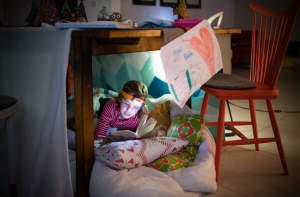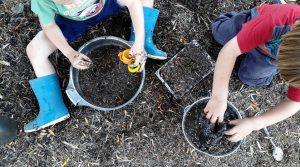You’ve probably heard about summer learning loss, a growing learning gap between kids who take summers off and those who continue to study. This idea has been pretty well accepted in education circles for more than 30 years. Recent research, however, suggests the truth is more complicated that we realized. If you’d like to read more about the educational research, try this article from Education Next.
The warm months of June, July and August present an opportunity for us not only to help our kids continue the learning they began during the school year, but also to take their education in new directions. And you can do this without letting your kids know they’re actually learning.
 Start your summer learning plans by considering summer school and summer camps. (Now, your kiddo may realize that this is about learning, since it involves going to school.) In addition to traditional summer school, your school district may offer special programs that focus on your kid’s interests. In Missouri, some districts allow non-resident students to enroll in their summer programs. Kansas City Mom Collective has a collection of helpful guides to local summer programs and camps.
Start your summer learning plans by considering summer school and summer camps. (Now, your kiddo may realize that this is about learning, since it involves going to school.) In addition to traditional summer school, your school district may offer special programs that focus on your kid’s interests. In Missouri, some districts allow non-resident students to enroll in their summer programs. Kansas City Mom Collective has a collection of helpful guides to local summer programs and camps.
5 Ways to Keep Your Kids’ Brains Growing This Summer.
Read.
If you only find time for one “educational” activity this summer, make it reading. What they want. When they want. Set a goal to read 1,000 minutes this summer and encourage your child to track their goal, maybe using this visual from Busy Kids, Happy Mom.
Play.
A wealth of research shows that unstructured play — play that isn’t organized or directed by adults and that doesn’t have a defined purpose or outcome — is a fundamental necessity for children to thrive physically, emotionally, mentally and socially. Unstructured pretend play has the added benefit of helping kids develop their imaginations, hone their creativity and learn how to amuse themselves.
Explore.
Spending time outdoors isn’t just enjoyable — it’s also necessary. Many researchers agree that kids who play outside are happier, better at paying attention and less anxious than kids who spend more time indoors.
Investigate.
Time away from school allows kids to focus on things that are interesting to them. Have your kids make a list of things they find fascinating and then use that list to plan your summer. Choose a focus for each week to fuel your child’s interest. Older kids can even come up with ways to infuse that theme into everyday activities.
For 101 more ideas, download this list from Childhood 101.
















